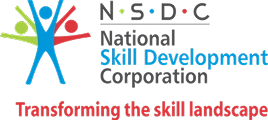Course Design By
Nasscom & Wipro
+ More Lessons
Course Design By

Nasscom & Wipro
Course Offered By

Croma Campus

Stories
success
inspiration


career upgrad


career upgrad


career upgrad


career upgrad
12-Jul-2025*
07-Jul-2025*
09-Jul-2025*
12-Jul-2025*
07-Jul-2025*
09-Jul-2025*

You will get certificate after
completion of program

You will get certificate after
completion of program

You will get certificate after
completion of program
in Collaboration with






Empowering Learning Through Real Experiences and Innovation

we train you to get hired.

Phone (For Voice Call):
+91-971 152 6942WhatsApp (For Call & Chat):
+91-971 152 6942Get a peek through the entire curriculum designed that ensures Placement Guidance
Course Design By


Course Offered By

Ready to streamline Your Process? Submit Your batch request today!
You can complete the MS Dynamics 365 CRM technical training program in 35-45 days
You will learn under the mentorship of a highly skilled and experienced Microsoft Dynamics 365 CRM technical consultant
You can make around ₹3,00,000 PA as a Dynamics CRM technical consultant
We give video recordings of the lectures to the students. If you miss your class due to some reason, then you can watch the recorded lecture and clear any doubt that you may have in the next class with the trainer

FOR QUERIES, FEEDBACK OR ASSISTANCE
Best of support with us
For Voice Call
+91-971 152 6942For Whatsapp Call & Chat
+91-9711526942